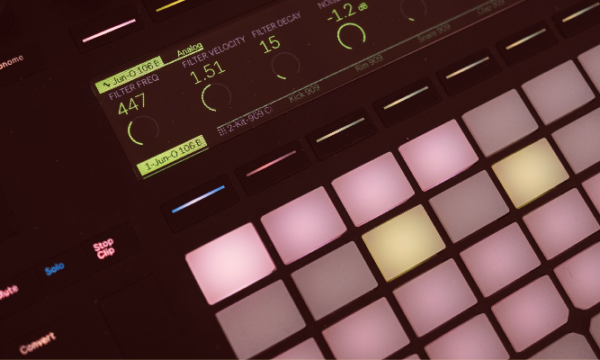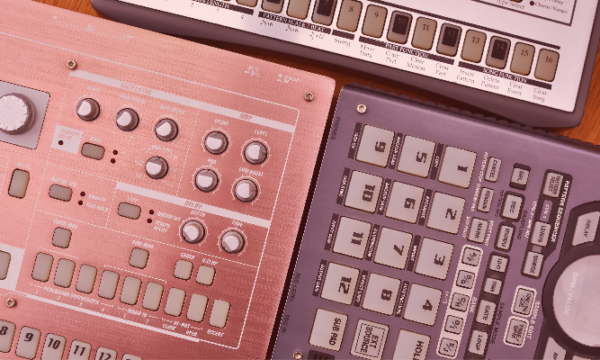Sampling Pros & Cons with a Rich History
When creating music, artists have two main pathways: sampling or composing original works. Both approaches have a rich history and bring unique benefits and challenges. For rappers and producers, understanding the pros and cons of each can inform not only the creative process but also how they navigate the ethical and legal landscape of music production.
Sampling has long been a cornerstone of hip-hop and various other music genres. It allows producers to draw inspiration from past works, creating new compositions by weaving in familiar sounds. For some, this practice enhances the creative process, providing access to layers of musical texture and nostalgia. When used effectively, sampling can bring a sense of cultural resonance, giving the audience a connection to the roots of hip-hop, funk, jazz, and soul. Moreover, sampling can be time-efficient for producers who are more focused on beat-making and song arrangement rather than composing melodies and harmonies from scratch.
However, sampling comes with its challenges. Legally, artists must obtain permission from the original creators, and this can often lead to complications. Licensing fees can be prohibitively expensive, especially for independent or emerging artists. There’s also the risk of lawsuits, which can be financially devastating. Beyond legal concerns, over-reliance on sampling may hinder some producers from developing their unique sound. If an artist is heavily reliant on pre-existing material, it may limit their ability to experiment and create truly original works.
Original Composition A Path of Unique Creativity
Creating original compositions provides complete creative freedom. By composing your own music, you craft a sound that is entirely yours. This level of artistic control allows you to shape the emotional and sonic direction of your work, without the need to pay licensing fees or worry about legal repercussions. Furthermore, original composition can elevate your identity as an artist, giving you a distinct voice that stands out in the crowded music industry. Many producers and rappers who opt for original composition experience a deeper sense of accomplishment, knowing that every beat, melody, and harmony came directly from their creative vision.
On the flip side, original composition requires a higher level of technical skill and time investment. Learning music theory, mastering instruments, and creating compositions from scratch is a demanding process. It can take years to refine these skills to a professional level. Additionally, starting from a blank canvas can sometimes lead to creative blocks, where producers find themselves stuck without the immediate spark that sampling might provide. For emerging artists, the initial learning curve can be discouraging.
Artistic Integrity Historical and Ethical Considerations
While sampling has a long history in hip-hop, it’s essential to address the ethical concerns around using another artist’s intellectual property. Even if sampling is a common practice, using someone else’s art without permission as a means to advance your own can be seen as inherently exploitative.
When an artist samples without consent or proper licensing, it can raise questions about artistic integrity. While some may argue that sampling is a way of paying homage, the original artist might not see it that way—especially if they feel their work is being used for someone else’s financial gain or artistic success without recognition or compensation.
In the early days of hip-hop, sampling was not only common but celebrated as part of the genre’s culture. However, the music business has since changed, and the standards for intellectual property have become stricter. Today, sampling without permission can be seen as an ethical breach, even if it remains a standard practice in some circles.
At its core, using another person’s creation to build your own success, without giving proper credit, is a selfish act. As artists, it’s important to consider whether borrowing someone else’s work without their approval aligns with your values and sense of artistic integrity. True creativity often lies in innovation, and sometimes that means forging new paths rather than relying on the work of others.
Final Thoughts
In the debate between sampling and original composition, there is no definitive right or wrong answer. Both approaches offer unique benefits and challenges. Sampling allows producers to tap into a rich history of sound and create something fresh from the past, while original composition gives artists the freedom to craft something wholly their own.
However, as hip-hop continues to change, it’s important for producers and rappers to not only weigh the legal and creative implications of their choices but also consider the ethical responsibility they hold as artists. At the end of the day, the decision between sampling and original composition should align with your personal artistic vision, your values, and the legacy you wish to leave in the world of music.
Justin David
Creative man • Philosopher • Artist • Producer





